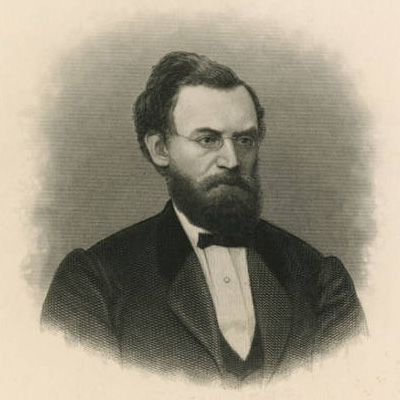Carl Schurz was a nineteenth-century German-American Statesmen who had a notable impact on shaping American Politics in the middle third of the nineteenth-century. Carl Schurz was born on March 2, 1829 in Liblar, Prussia. As a young man he attended the University of Bonn in Bonn, Germany. While at Bonn he was mentored by Gottfried Kinkel, a noted German revolutionary. In fact, Schurz helped Kinkel escape prison during the political unrest in Europe in the 1840s. In 1848 many European states experienced civil unrest via a series of revolts that swept across the continent, and among the activists calling for change in Germany was a young Carl Schurz. After the Revolutions of 1848, Schurz, like many Northern Europeans emigrating from Europe, settled in the Northwest frontier lands of the United States. Schurz specifically settled in Milwaukee, Wisconsin. Once in Milwaukee, Schurz established a legal practice and integrated himself into the town’s politics. Starting with the local level he continued to grow his political interests and began to influence policy decisions at the state level. In the late 1850s Carl Schurz joined the newly formed Republican Party. Schurz was a staunch anti-expansionist and routinely spoke out against the institution of slavery. His most notable anti-slavery speech was given on September 16, 1864. At this point in the Civil War Schurz was a Major General in Third Division of the Union Army. While in Philadelphia, Pennsylvania he gave his “For the Great Empire of Liberty, Forward” speech, where he urged Northerners to continue to support the United States’ war effort so the United States could crush the Confederacy and end slavery once and for all. Schurz would routinely join Lincoln whenever Lincoln campaigned with the Republican party across the Midwest in 1859 and 1860. Schurz was rewarded for his contributions to Lincoln’s nomination and election most notably his promotion to Major General. After the Civil War Schurz settled in Missouri and was elected to the United States Senate as a Representative of Missouri. Rutherford Hayes was elected to the Presidency in 1876, and Hayes then appointed Carl Schurz as Secretary of the Interior. A position Schurz reprised under James Garfield. After his time as Secretary of the Interior Carl Schurz retired to New York City and lived out the rest of his life until he passed away in 1906 at the age of seventy-seven.
Carl Schurz

The Carl Schurz collection is organized into three series. The first and most substantial series is a collection of correspondences mostly written by Carl Schurz himself. The collection is comprised mostly of original documents; however, some of the correspondences are also photocopies and have been noted as such in the breakdown. Other authors in the collection include Abraham Lincoln and Gideon Welles. The addressees of the letters are incredibly varied and range from other statesmen like John Sherman and members of the Chamber of Commerce to school teachers asking if Carl Schurz would speak to their class. The majority of the correspondences are from his time after between the Civil War to his death in 1906 and a significant portion pertain to his attendance of social events. The second series is a collection of images, mostly photographs and engravings, of Carl Schurz over his lifetime. Other images include Carl Schurz stamps, and reproduced images of the University of Bonn and other nineteenth-century American Statesmen. However, the vast majority of the images depict Carl Schurz over his lifetime. The third and final series is comprised of two sources of ancillary information. The first is a collection of correspondences pertaining to the consolidation of the Carl Schurz collection around the early 2000s. The second is a collection of brief background information on some of the addressees contained in the first series. The third series is a tool for researchers to better understand the historical actors found in the first series.
